Another week in the death of Australian media is off to a strong start. Indeed, it could barely be better. All notions of quality and independence have been dumped in pursuit of desperate click through.
Let’s start with The Guardian Australia, a brand effectively franchised to Wotif founder and leftie zillionaire and Greens sugar daddy Graeme Wood.
Some other leftard with more cash than brains has financed it to wet the bed over political lobbying with an eggbeater job it calls “The transparency project”.
 Its conclusions? Well, the Guardian reports:
Its conclusions? Well, the Guardian reports:
More than half of all Australian lobbyists previously worked inside government or for the major political parties, with one in four staffing the offices of ministers, parliamentary secretaries or backbenchers.
Guardian Australia has investigated the backgrounds of all 483 individuals listed on July’s federal lobbyist register, checking each for a history in federal or state government, either as politicians, political staffers, party officials or public servants.
The analysis, believed to be the first of its kind, reveals 255 lobbyists, or 52.8%, have a previous history within government or political party hierarchies.
It also revealed one in four lobbyists have worked as staffers – policy advisers, chiefs of staff, or electorate or media officers – to Australian politicians.
Shock, horror! We thought the overwhelming majority of political lobbyists were all former pastry chefs.
Over at the ABC, it’s quality all the way — as can be seen by tonight’s episode of Australian Story:
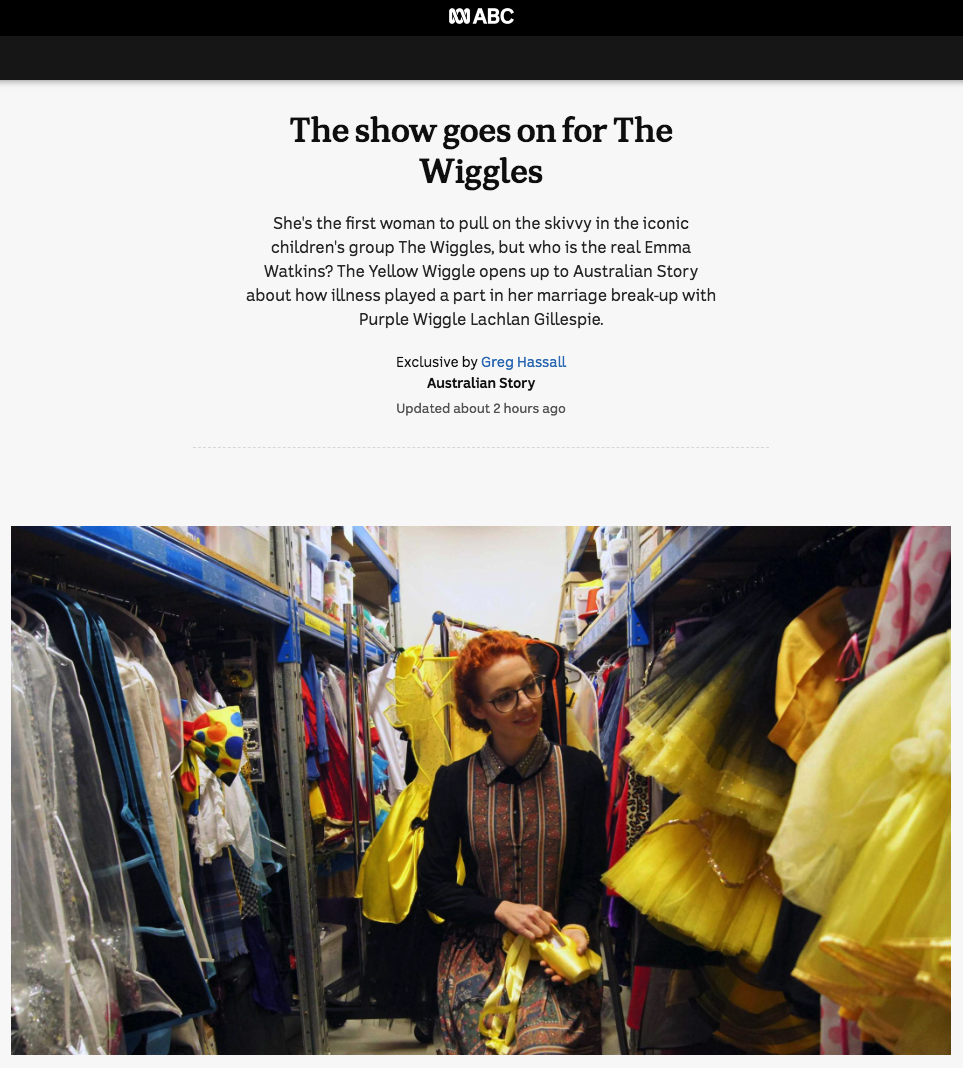 It’s a little unfair, though, to have it on when the under-fives have gone to bed.
It’s a little unfair, though, to have it on when the under-fives have gone to bed.
But none of these ripe turds match this offering from the obituaries in The Age:
Richard Searby, who has died aged 87, was a prominent Australian lawyer who chaired Rupert Murdoch’s News Corporation and was the media tycoon’s closest confidant through a decade of corporate dramas.
Searby became a director of News Corp, the holding company for Murdoch’s global newspaper and broadcasting interests, in 1977, and played a key behind-the-scenes role in negotiations for the controversial 1981 takeover of Times Newspapers in London, and its aftermath of industrial disputes…
Later that year, Searby became chairman of News Corp. He was quietly at Murdoch’s side through all the episodes that reinforced the tycoon’s formidable reputation in that era – including the 1986 Wapping dispute, in which the Times titles were shifted to new print technology in the face of violent union opposition…
Richard Henry Searby was born on July 23 1931 into the upper crust of Melbourne society. His father Henry was a distinguished surgeon and leader of Australia’s medical establishment; his mother Mary received an OBE for her charitable works.
Richard was educated at home by his grandfather (a former headmaster of Melbourne High School) and subsequently at the elite Geelong Grammar School, where he and Rupert Murdoch shared a study and were stars of the school debating society, Murdoch generally taking the Leftist side of the motion. The school’s head, Sir James Darling, recalled Searby as “thoroughly good, responsible and keen – more or less everything you’d want in a boy”.
Searby studied at Melbourne University for a year before travelling to England to read Classics at Corpus Christi College, Oxford, where he also played real tennis for the university. Murdoch was also in Oxford as an undergraduate at Worcester College and was by now a close friend.
Searby was called to the bar by the Inner Temple in 1956 and to the Victorian bar in Australia the following year. After a stint as assistant to the chief justice, Sir Owen Dixon, he developed a successful commercial and government practice, lectured at Melbourne University, and took silk in 1971.
He became well connected in political circles, notably as an adviser to Malcolm Fraser as prime minister from 1975 to 1983 – and was said to have been shortlisted by Fraser for the vacant post of chief justice in 1981.
But Searby preferred to develop his business portfolio. Besides News Corp and several of its key subsidiaries, he was a director of Rio Tinto, Shell Australia, Woodside Petroleum and the winemaker BRL Hardy. In later years he was chancellor of Deakin University (whose campuses are in and around Melbourne), chairman of Geelong Grammar School and president of the Australian Institute of International Affairs. He was awarded the Order of Australia in 2006 for his educational work.
Richard Searby married Caroline McAdam, a doctor’s daughter, in 1962; they shared a particular love of Jane Austen, often reading her novels aloud to each other. Caroline died in 2014 and he is survived by their three sons.
The source for this very Melbourne story? “The Telegraph, London.”
Yes. That’s right. The Age is no longer capable of even covering stories from its own hometown. Yet it imports every sort of leftie drivel from America — even if it leaves the handful of remaining readers wondering where Melbourne’s oppressed Chicano market gardeners might be found.
Illustration: Wikimedia Commons.
Got something to add? Join the discussion and comment below.
Got something to add? Join the discussion and comment below.
Get 10 issues for just $10
Subscribe to The Spectator Australia today for the next 10 magazine issues, plus full online access, for just $10.

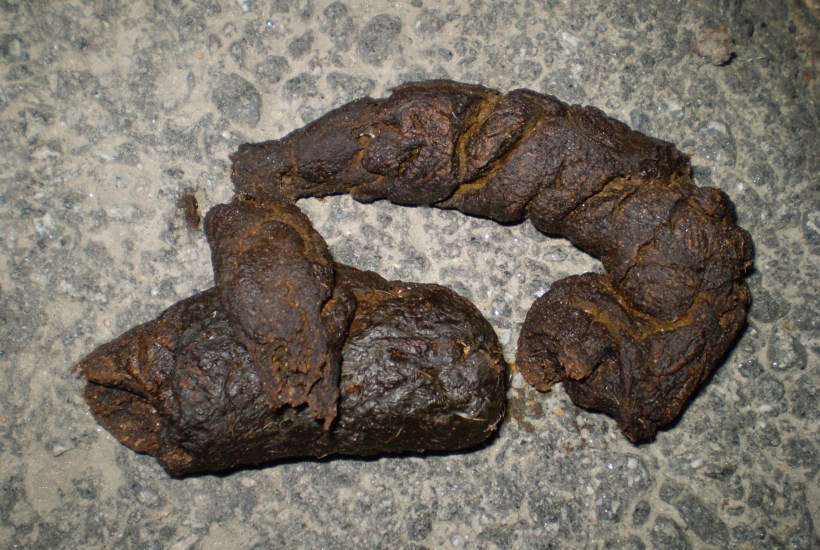
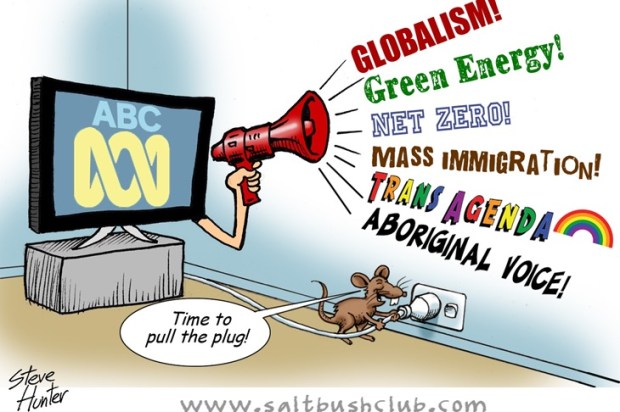
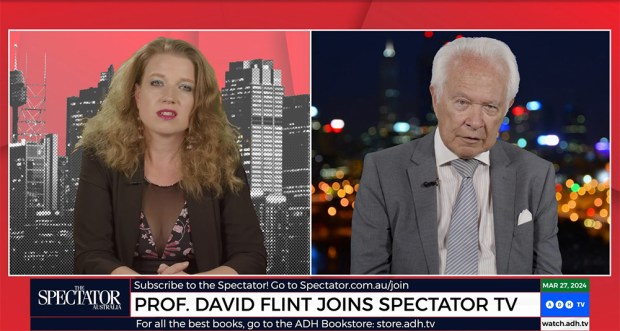
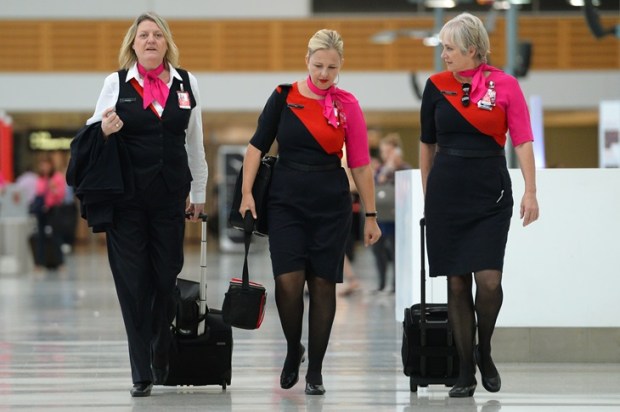





















Comments
Don't miss out
Join the conversation with other Spectator Australia readers. Subscribe to leave a comment.
SUBSCRIBEAlready a subscriber? Log in